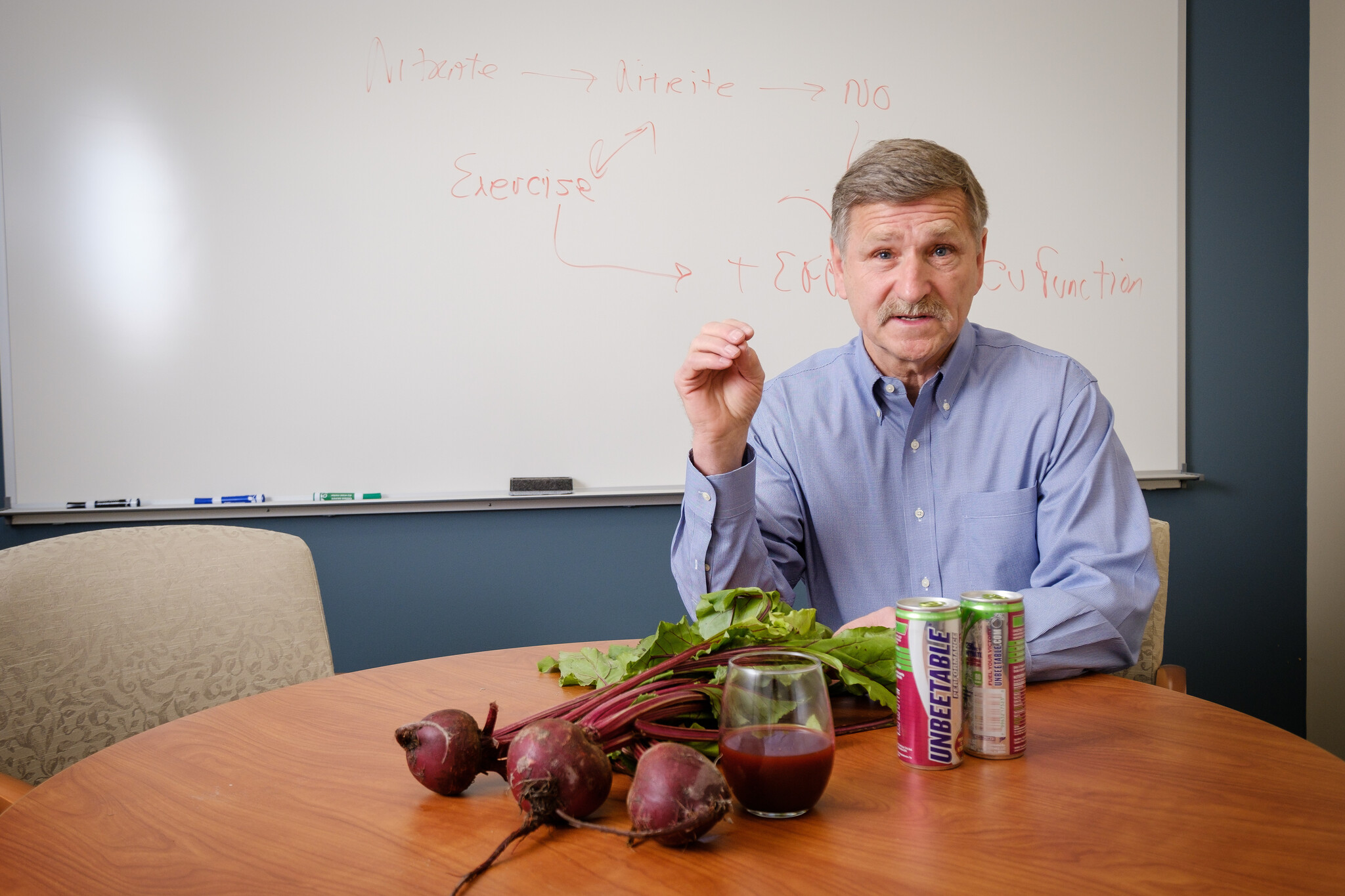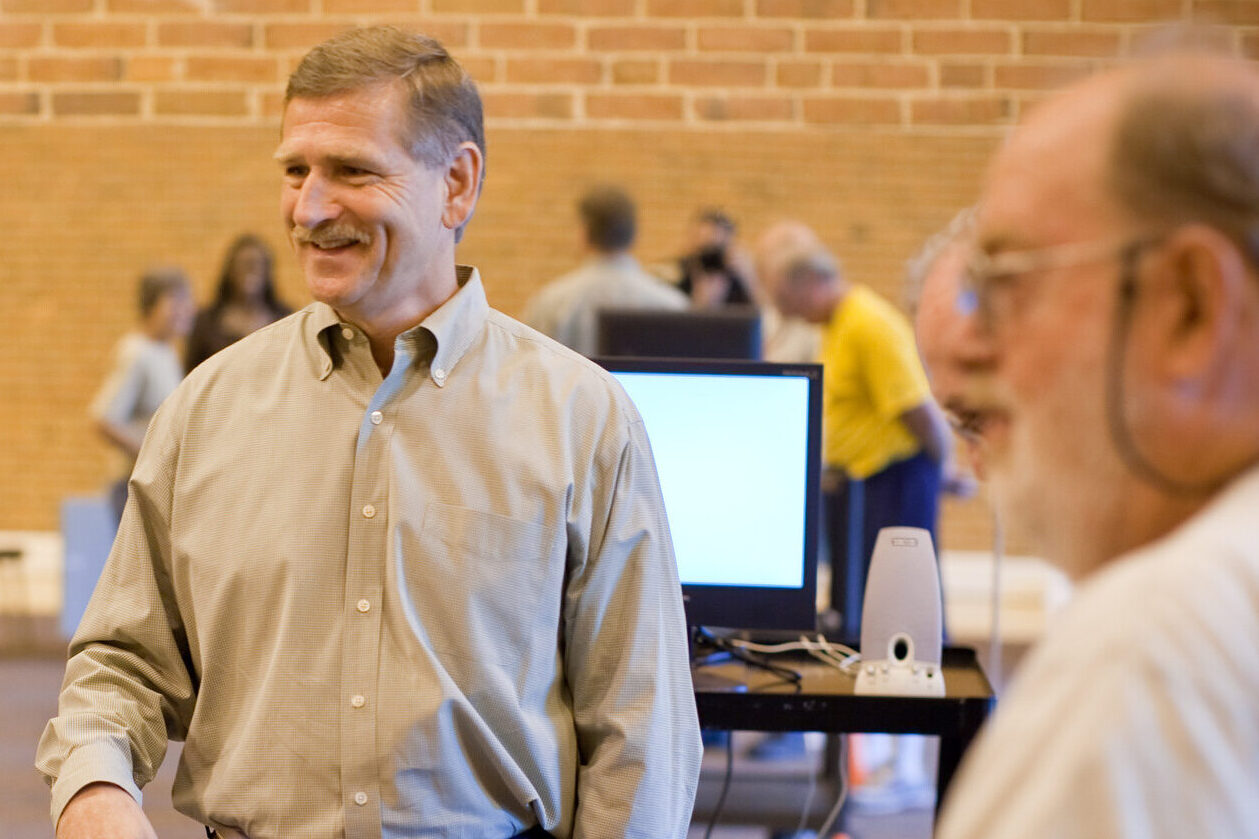Teacher-Scholar Legacies: Jack Rejeski

By Jeffrey A. Katula, Professor of Health and Exercise Science
In 1978, Drs. Bill Hottinger and Paul Ribisl, faculty in the then Department of Physical Education, now the Department of Health & Exercise Science, hired Walter J. Rejeski (“Jack”) as part of their effort to transform the department into the international leader in health science research that it is today. At the time, Jack was an avid skier, having attended Norwich University to compete on the ski team and had dabbled in education as a high school biology teacher. However, after working with prominent social psychologists in his graduate program at the University of Connecticut, Jack dedicated his career to understanding human health and function, particularly emotional, cognitive, and physical functioning in older adults. And thus began the illustrious 47-year career of Jack Rejeski at Wake Forest University.

Jack has made enormous contributions to the fields of health psychology and behavioral medicine. He has been involved in dozens of clinical trials examining physical activity and aging, physical functioning and mobility, exercise-induced emotional responses, group-based health behavior interventions, weight loss and physical functioning, and mindfulness and eating behavior. Jack’s research productivity is legendary. He has more than 300 publications in the most prestigious peer-reviewed biomedical journals. Over the course of his career, Jack has been either the senior/principal investigator or co-investigator on more than 30 federally funded grants. In 1985-86, just seven years after joining the faculty, Jack won the University Research Award and, in 1998, the Dean’s Office honored him by awarding him the Thurman D. Kitchin Professorship of Health and Exercise Science. Jack is widely respected as being a brilliant, tireless, courageous, innovative, and relentless scholar with a passion that is unmatched — except perhaps by his comparable dedication to mentoring students.
Early in his career, Jack established himself as an outstanding teacher-scholar. Upon arriving at Wake, Jack developed a core course within the curriculum in Health Psychology, emphasizing a connection between the mind and body that was absent in most exercise science departments at that time. This course continues to be a cornerstone in the major, preparing students for patient interactions that intentionally lead to behavior change and positively impact both physical and mental health outcomes. From research design and biostatistics to the placebo effect, Jack’s students have benefited from his understanding that “one size does not fit all” and mindfulness matters. But Jack’s impact on students only started in the classroom; he was one of the first at WFU to engage students in his research endeavors and became a highly sought-after mentor, having sponsored more than 50 undergraduate and 35 graduate students throughout his career. In addition, although our department does not have a Ph.D. program, Jack mentored and provided financial support through research grants for five post-doctoral fellows and mentored an M.D./Ph.D. student in Neuroscience at the medical school within the Laboratory of Complex Brain Networks.
In the early 2000s, Jack began to study Eastern traditions of contemplative practices, which started to shift the focus of his research. He was able to maintain his incredible productivity, including leading several clinical trials, while initiating a new line of research and expanding into neuroscience and psychophysiology. This change in direction led to numerous extraordinary collaborations with scientists from a variety of disciplines, including radiology and brain science.
Paul Laurienti, Professor of Radiology and Director of the Laboratory for Complex Brain Networks at the WFU School of Medicine, had the following to say about Jack:
Many years ago, Jack approached me about potential studies aimed at understanding the neural mechanisms that underlie eating behaviors, obesity, and weight loss. Jack had the idea that there may be brain connectivity signatures that would distinguish between those individuals who are amenable to behavioral weight loss interventions and those who are resistant. Jack’s foresight was spot-on; we have subsequently shown that connectivity in specific brain networks is related to hedonic hunger and predicts weight loss. As a friend, Jack has always been available when I needed advice, and while Jack may be retiring from his official role as a mentor and collaborator, he will never retire from being my friend.
Jack’s influence on the broader Wake Forest University research community and beyond has also been extraordinary. Jack was heavily involved with the Claude D. Pepper Older Americans Independence Center at the Wake Forest School of Medicine, since its inception in 1992. The mission of the Pepper Center is to promote the health and independence of older adults by attracting and developing investigators and supporting pilot, developmental projects and independently funded studies.
According to Dr. Stephen Kritchevsky, Professor of Internal Medicine at WFU School of Medicine;
Jack was a major guiding force for the Pepper Center. He has served as a leader of its Clinical Research Core, a member of the Executive Committee, and Senior Advisor. He led the Center’s work in advancing the measurement of physical function in older adults and innovating new approaches to promote behavior change to increase physical activity and reduce caloric intake.
In 2009, Jack, along with Dr. Daniel Kim-Shapiro, Professor and Chair in Physics, founded the Translational Science Center (TSC) at Wake Forest University. The TSC focuses on promoting and maintaining functional health in aging, particularly the effects of treatments designed to improve cardiovascular health, cognitive function, and physical activity.
According to Dr. Kim-Shapiro:
Without Jack, there would never have been a Translational Science Center. When the first call for Interdisciplinary Centers was made around 2008, Jack suggested that we submit a proposal for a Center that would take basic scientific discoveries and translate them into clinical studies that improve functional health in aging. The goal was to bring together researchers from a large array of disciplines at the Reynolda and Bowman Gray campuses to do research that would otherwise not be done without the help of the Center. The TSC was started in 2009 and has been supporting this type of research ever since.
One could look at the multitude of undergraduate and graduate students, post-doctoral fellows, and other faculty that Jack has mentored; or his impressive publication record; or his incredible success at grant writing to illustrate his profound influence on the field. But those metrics do not capture Jack’s real impact.
Dr. Jason Fanning, Associate Professor of Health & Exercise Science and Wells Fargo Faculty Scholar, was Jack’s last post-doctoral fellow. According to Dr. Fanning:
It is easy to see Jack as an accomplished and important scholar, but those working outside of the behavioral sciences may not appreciate just how much of a household name ‘Rejeski’ is. Jack played a central role in many of the most important large-scale studies of movement and eating behavior in older adults. He penned touchstone papers that guided how many researchers and clinicians think about the role of psychology in these domains or of the importance of quality of life during aging. He even authored one of the most ubiquitous measures used in the movement sciences. Perhaps as astonishing is Jack’s skill as a mentor and advocate — anyone who has worked closely with Jack comes to understand how much he cares for those around him. As his postdoc, Jack would often show up at my door, ready to treat me to a coffee so he could share his newest thinking about the human mind and behavior.
Although Jack’s impact on the field is profound and lasting, his true passion is his family, particularly his two grandchildren. His ability to balance his family life with his work is also legendary. Jack has an insatiable desire to consume everything there is to know about a topic, from research studies to do-it-yourself home renovation projects and automobiles. It was not unusual on Monday mornings to learn that Jack spent the weekend reading two books, writing a research paper, babysitting his grandchildren, remodeling a bathroom, AND buying a new car! Those of us who have had the honor of working and collaborating with Jack over these many years know that he will continue to surpass all expectations, and we wish him the best as he moves on to this next and much-deserved chapter… here’s to adding more life to your years!

